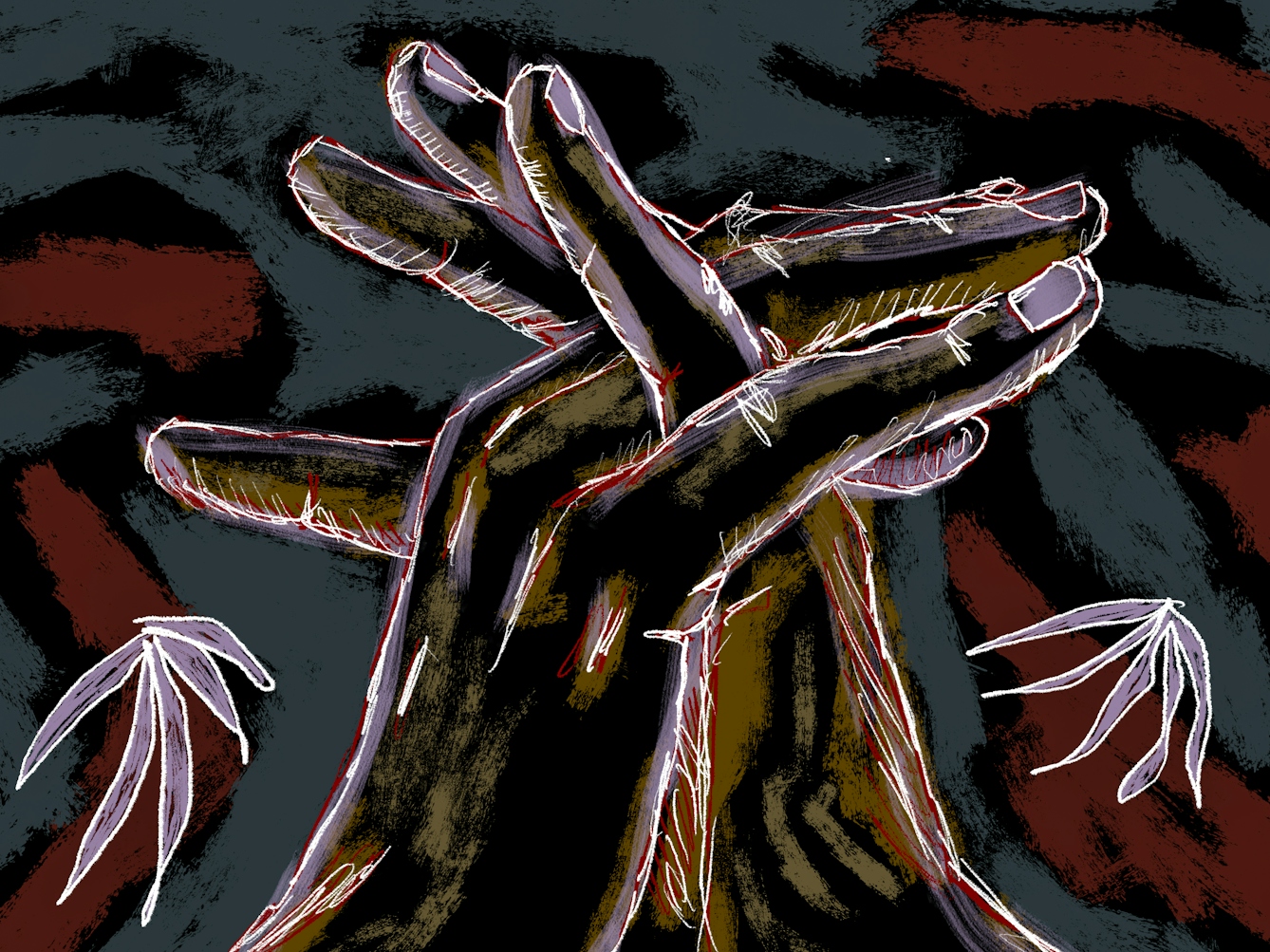As a working-class woman from a family of grafters, being able to earn money has always been important to Claire Hart. A recent prolonged period without work felt like a disaster. Claire was overwhelmed with guilt and shame, and her mental health really suffered. Here she explains how she survived unemployment, and why having a job is so important to her identity.
Surviving as a working-class woman without work
Words by Claire Hartartwork by Nan Carreiraaverage reading time 6 minutes
- Article

I’ve always had a job. I’m from a working-class, Northern family and I was brought up to work hard and be careful with my finances. Until recently, I’d never been unemployed.
In 2018, I was super-excited to be starting a new chapter of my life in San Francisco with my partner. I knew when I first arrived that I’d be out of work for a little while. What I didn’t expect, though, is that it would take over two years to secure a job and how not working for that amount of time would impact my identity and sense of self.
I grew up in Rotherham, South Yorkshire, and my family is made up of generations of grafters. My grandad and those who came before him routinely risked their lives every day down the pits to put food on the table and keep a roof over their families’ heads.
From an early age, I saw my mum and her siblings get up, go to work, eat, sleep and then repeat the same routine each day. Despite their daily sacrifices, we were still poor. I came to understand how important earning money was and, like most working-class families, I was well aware of what might happen if work wasn’t available.
If you don’t earn money, you lose things. It’s just the way it is.
As I grew older, my mum started sharing the details of our finances with me. We didn’t have much to spare, but she insisted on giving me £5 a week to do whatever I wanted with. I had to decide whether to pay gymnastics-class subs, go swimming, or get some chocolate as a treat.
If I ran out of money, I understood there was no fallback. I knew that if I wanted to add to my collection of plastic farm animals, I would have to wait for my birthday, Christmas or ask family members if I could do some jobs for some extra pocket money. Money was scarce, and I learned it was never guaranteed. It had to come from somewhere and it needed to be earned.
When the guilt sets in
Many years later, after meeting my partner and getting married, I found myself packing up my belongings and preparing to join him in California. For the first few months in my new city, I gifted myself time to enjoy my new surroundings. I knew I had to be kind to myself in order to weather the inevitable adjustment period of homesickness and waiting on visa and permit applications.
It was to be the first time in my adult life without a job, and this time I had no choice in the matter. It felt like such a gift to live without work. I tried to let go of the voices in my head questioning what I was doing with my time. I acknowledged this process can take a while and rode around on my bike a lot – taking in the incredible nature and culture this part of the world has to offer. But it wasn’t long, though, before the guilt started to set in.

“Without work, I felt a sense of arrested development. I was unable to feel settled or really feel situated. I was in stasis. My future was on pause.”
I started feeling terrible about not contributing to society and not being productive enough with my time. I started to feel like I was letting my family down. I knew my relatives would want to see me working hard and succeeding. For working-class people, having an opportunity to form an identity outside of work can be a luxury.
Without work, I felt a sense of arrested development. I was unable to feel settled or really feel situated. I was in stasis. My future was on pause.
Regardless of these feelings, I was unable to take matters into my own hands. I had to keep waiting for my papers to arrive. Time went on and it became increasingly hard to disconnect from the guilt and shame that now had set in.
Moving often creates feelings of displacement. I was lucky that I had my partner, dog, and a small group of friends around me, but I realised I could no longer call on my closest family and friends to help lift me up while I rode out a tough time. I was without my community, which is also to say my safety net.
I’d also never really appreciated the sense of connection that work can provide, be it the small talk about someone’s weekend plans, sharing updates over a hot drink, and routinely checking in on how your colleagues are feeling.
Downhearted but determined
My work permit finally arrived in March 2020, more than a whole year later, and just as the pandemic was hitting hard. I had felt my mental health deteriorating, and the lockdown delivered yet another blow. The plans I had created in my mind to keep my spirits up and look forward to – coming home to visit my family, making new friends and colleagues – vanished in an instant. The waiting and uncertainty had become unbearable, and I had all but lost sight of who I was any more.
The waiting and uncertainty had become unbearable, and I had all but lost sight of who I was any more.
Downhearted but still determined, I started applying for jobs. Being interviewed is tough and the rejections cut deeper than ever before. My self-confidence was shot; I was at my lowest and spiralling. I felt as if I was barely existing in either world; I thought I was fading from the memory of my UK community, and couldn’t make my way in my US community.
I started to lose count of the applications I’d submitted, and then I had an interview where the neighbourhood internet cut out while I was presenting to a panel. I felt certain that had cost me the gig – something yet again completely outside of my control.
A week later, however, I received a call from the recruiter. I had a million emotions on the spot and my entire body was shaking.
They offered me the job.
I cried so hard. I cried for how proud I knew my family would be. I cried for my success. I had survived.
About the contributors
Claire Hart
Claire Hart is a user researcher working within the technology industry. She is a Rotherham lass living in California who loves to ride her bike, play in punk bands, watch horror films, and will for ever be a friend to animals. She is passionate about self-improvement and spreading kindness in the world.
Nan Carreira
Nan Carreira is a non-binary artist working primarily with painting, drawing and participative art, with a special focus on queerness. Nan’s work can be seen as a call to imagine new worlds where traits like vulnerability and self-expression are celebrated instead of being punished and repressed.

